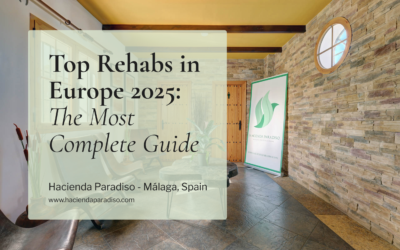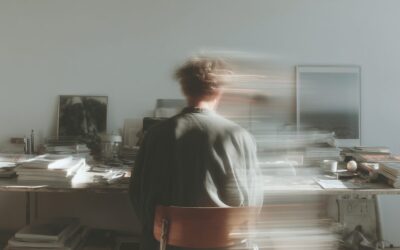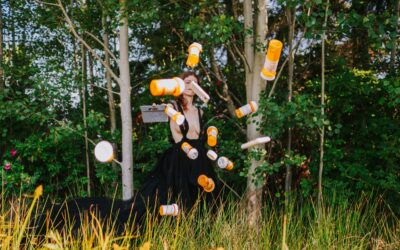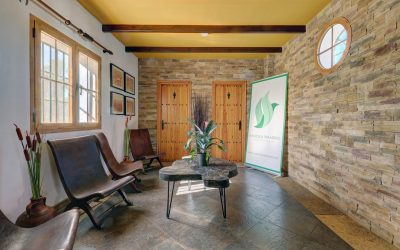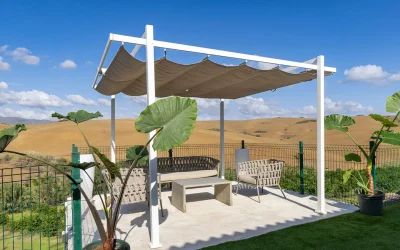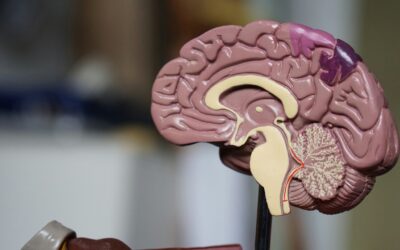Last updated: November, 2025
Bipolar disorder and addiction often develop together, creating a cycle that touches mood, focus, and relationships. For many individuals, the intense highs and lows of bipolar disorder make daily life feel unpredictable. Substances may look like a shortcut to calm or energy, yet they usually magnify instability and delay true healing.
Understanding this connection is a compassionate first step. With informed care and a steady routine, it becomes possible to restore balance, rebuild trust, and create space for lasting recovery.
What is Bipolar Disorder?
Bipolar disorder affects how the brain regulates mood, energy, and attention. Emotional shifts can be powerful and confusing, which makes structure and support essential.
Common experiences include:
- Manic or hypomanic episodes: increased energy, fast thoughts, reduced need for sleep, impulsive choices.
- Depressive episodes: low mood, fatigue, loss of interest, difficulties with concentration and motivation.
- Mixed features: symptoms of mania and depression at the same time, which can feel intense and disorienting.
In these phases, some people turn to alcohol or drugs to quiet the mind or lift the mood. Relief is often brief. Over time, the brain adapts to substances, cravings grow, and the original symptoms become harder to manage.
The Connection Between Bipolar Disorder and Addiction
Bipolar disorder and addiction share pathways linked to reward, stress, and impulse control. During manic periods, risk taking can increase. During depressive periods, emotional pain can feel overwhelming. Substances that seem to help in the moment tend to widen mood swings later, which keeps the cycle going.
When both conditions occur together, it is called a dual diagnosis. Treating one without the other rarely brings lasting stability. An integrated plan that addresses mood regulation and substance use at the same time improves outcomes, reduces relapse risk, and restores confidence.
Integrated and Holistic Recovery
Recovery works best when the whole person is supported, including mind, body, routine, and environment. A balanced plan often combines medical care, therapy, and practical daily habits.
Medication management
Mood stabilizers, antidepressants, or antipsychotic medicines may be part of care. The goal is to reduce swings, protect sleep, and support focus. Regular review ensures the plan remains safe and effective.
Therapeutic support
Cognitive Behavioral Therapy helps individuals identify triggers, challenge unhelpful thoughts, and practice healthier responses. Dialectical Behavior Therapy builds skills for emotion regulation, distress tolerance, and interpersonal effectiveness. Together, these tools turn insight into daily action.
Mindfulness and stress reduction
Calming practices such as breathing exercises, gentle meditation, and guided relaxation ease anxiety and create a pause between feeling and doing. With practice, that pause becomes the space where new choices begin.
Healthy routines and lifestyle structure
Stable sleep, balanced nutrition, and regular movement are pillars of mood stability. Light exposure in the morning supports circadian rhythm. Outdoor time can lower stress and improve clarity. Small, repeatable habits are more powerful than occasional big efforts.

The Role of Family and Community
Healing deepens in connection. Supportive relationships reduce shame, bring perspective, and make change feel more possible.
Family education and therapy
When relatives understand bipolar disorder and addiction as medical conditions, blame softens and compassion grows. Family sessions encourage calm communication, clear boundaries, and shared plans for difficult moments. This protects everyone’s wellbeing.
Peer and community groups
Hearing from people on similar paths reduces isolation. Group work builds accountability and offers practical ideas that have worked for others.
Aftercare and follow up
Recovery is a process, not a single event. Regular therapy, check ins, and relapse prevention plans keep progress steady. If setbacks happen, support makes it easier to return to healthy routines.
Why Treating Both Conditions Together Matters
Addressing bipolar disorder and addiction at the same time helps individuals:
- Stabilize mood and reduce extremes.
- Understand triggers for substance use and plan safer alternatives.
- Strengthen emotional regulation and decision making.
- Rebuild trust with family and friends through consistency.
- Improve long term wellbeing with routines that are realistic and kind.
An integrated approach treats causes and consequences together, which is why it leads to more durable change.
Practical Strategies for Daily Stability
Plan the day in gentle blocks
Anchor times for waking, meals, movement, focused work, and rest. Predictability calms the nervous system and supports sleep.
Make small choices visible
Use a simple habit tracker for three core actions, for example, lights out by a set time, short walk, balanced meal. Seeing progress builds momentum.
Prepare for difficult moments
Create a short crisis plan. Include two grounding practices, one supportive contact, and one safe place to pause. Keep it accessible on the phone.
Reduce known triggers
Limit alcohol and stimulants, keep caffeine moderate, and protect sleep from screens late at night. Substitute soothing activities such as warm showers, stretching, or quiet music.
Celebrate small steps
A steady week, an honest conversation, a healthier choice in a stressful moment, each one matters. Noticing them reinforces hope.
A Warm, Clinically Grounded Approach
Compassion is as important as any technique. Shame closes doors; understanding opens them. Recovery is not about perfection. It is about learning to respond with awareness and care, especially on hard days. With time, the nervous system becomes less reactive, choices become steadier, and life feels safer from the inside out.
Frequently Asked Questions: Bipolar Disorder and Addiction
They overlap in brain systems related to mood, reward, and stress. Substances may seem to soften emotional swings, yet they typically intensify them and increase dependency. Treating both conditions at once reduces relapse and supports a more stable mood. Over time, therapy, medication when appropriate, and healthy routines help the brain relearn balance, which lowers the drive to self medicate and strengthens confidence.
Therapy turns insight into skills. Cognitive Behavioral Therapy helps identify triggers and reframe unhelpful thoughts that fuel urges. Dialectical Behavior Therapy adds tools for emotion regulation, mindfulness, and relationship repair. With practice, individuals pause more often, choose safer coping strategies, and maintain progress during stress. These gains become habits, which is why therapy remains a core part of long term recovery.
Consistency is key. Regular sleep, balanced meals, and daily movement stabilize energy. Morning daylight helps the body clock. Limiting alcohol and stimulants protects mood. Brief mindfulness, journals for tracking triggers, and short outdoor walks reduce reactivity and lift motivation. When these habits feel doable, the nervous system settles, and both conditions become easier to manage.
Calm structure helps most. Shared routines, clear boundaries, and non judgmental listening lower stress at home. Families can learn the early signs of mood shifts, agree on a simple support plan, and avoid debates during heightened emotions. Compassionate language, steady expectations, and celebrating small steps promote safety and trust. Family therapy offers guidance so everyone has tools, not only the individual in care.
Because it supports the whole person. Medication management steadies mood. Therapy builds coping skills. Mindfulness calms the nervous system. Movement, nutrition, and sleep anchor the day. Community and family add encouragement and accountability. When mind, body, and environment work together, recovery becomes sturdier and setbacks are easier to navigate, which leads to lasting change.

